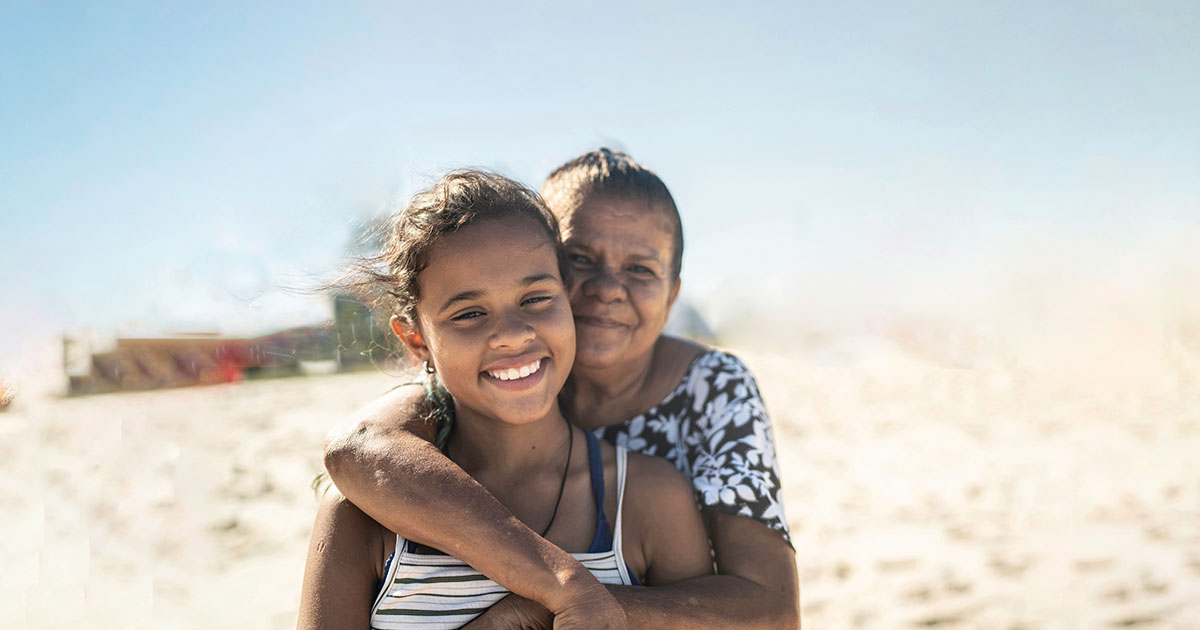Reconciliation is 2020
- Details
Twenty years ago in the year 2000, more than 250,000 people walked together in an act of unity, to show their support for a more reconciled Australia. Fast forward to 2020, and while this year we cannot walk together in the physical sense due to COVID-19, we can take time to reflect collectively on our history and what each of us can do to strive towards a more just, equitable and reconciled nation now, and in the years to come.
This year’s National Reconciliation Week theme recognises that we are In This Together which is something we can all participate in, by coming together virtually in the spirit of reconciliation. At Mission Australia, our staff have been engaging in a virtual Reconciliation Week Book Club where we have been exploring and discussing stories that provide a deeper understanding of Aboriginal and Torres Strait Islander perspectives, allowing us to unearth the truths about our history and to build the common understanding that grounds reconciliation.
I have just finished Archie Roach’s book, Tell Me Why. I listened to his narration of it, and found humour, humility, healing and hope within its virtual pages. He calls for us to focus on “Our shared humanity, rather than just seeing the things that divide us.” He says: “ We are closing ourselves off and not letting people in, not only into our country, but not letting them into our hearts, into our minds Australia was built on people coming here from other places around the world. That’s what made this country what it is today, our identity comes from many cultures and peoples.” These sentiments surely sit at the heart of reconciliation.
There is great work towards reconciliation happening in the communities we work in. Recently, our Cairns homelessness evaluation reinforced the value of having Indigenous mentors and the overall focus on cultural responsiveness across the three services, to ensure Aboriginal and Torres Strait Islander service users feel understood, respected and welcome. In Western Australia, Mission Australia has a great partnership with Bloodwood Tree Association, an Aboriginal Controlled Organisation that provides a Cultural Health Worker for the Pilbara Integrated Primary Mental Health Service and Emergency Relief.
We also see the amazing potential and work of our Aboriginal and Torres Strait Islander trainees who are involved in our Charcoal Lane social enterprise restaurant and gain important employment skills while accessing case worker support through the program. During COVID-19 lockdowns, Charcoal Lane is also doing fantastic work to provide nutritious meals to local Aboriginal and Torres Strait Islander communities alongside local councils, the Victorian Aboriginal Health Service and other local Aboriginal organisations.
This year’s dominant news story to date has of course been COVID-19 and that story too has lessons for us about the unfinished business of reconciliation when we look at it through other perspectives. It has brought to the surface many of the inequities that are too often ignored in terms of health and housing for Aboriginal and Torres Strait Islander people.
We have long known overcrowding has been a significant issue in Aboriginal and Torres Strait Islander communities for decades and that this increases the risk of many health issues, including the potential of increased risk of transmission and health complications due to COVID-19. As well, due to higher rates of chronic disease among Aboriginal and Torres Strait Islander communities, this leaves these communities more exposed to the impacts of this new virus.
COVID-19 has presented a grave risk in these circumstances, and Aboriginal Community Controlled Health Organisations have been on the frontline getting vital public health messages out and ensuring necessary supports are in place to prevent the pandemic wreaking devastation in these communities.
It’s a mark of years of national neglect that Aboriginal and Torres Strait Islander people are over-represented in the homelessness statistics. While Aboriginal and Torres Strait Islander people represented 3% of the Australian population on 2016 census night, they also accounted for a staggering 20% of all people experiencing homelessness.
A Review of the National Partnership Agreement on Remote Indigenous Housing calculated that 5,500 new houses are required by 2028 to reduce the health impacts of overcrowding in remote communities. In addition, existing housing is in dire need of investment.
We may all feel at a low ebb at the moment, with our lives restricted and uncertainty surrounding jobs, housing and health. We have the great good fortune to live in a country which is well-positioned to weather the storm of COVID-19 and step out into clear and calm as the storm passes. However, the rising tide will only float all the boats if we decide to make boats now for our many people and cultures.
Part of the recovery efforts to build a better future for all Australians should include significant investment in remote housing and a national plan to end homelessness that addresses the over-representation of Aboriginal and Torres Strait Islander people who are homeless.
Restrictions are gradually easing across our country, but if we continue to neglect overcrowding and homelessness that affects Aboriginal and Torres Strait Islander people, we will have failed to take make substantive gains towards reconciliation. If we have learned anything from this public health crisis, it’s clear that safe, affordable and appropriate housing is a vital foundation of health and wellbeing for everyone.
While much has been achieved towards true reconciliation, there is still more work to be done. They say hindsight is 2020, and this year – the year of 2020 – is the ideal time to reflect on how far we have come, while taking new steps towards reconciliation now and into the future.

James Toomey
CEO Mission Australia
@jbc_toomey
Australia celebrates National Reconciliation Week from 27 May to 3 June every year. These dates commemorate two significant milestones in the reconciliation journey – the 1967 Referendum acknowledging Aboriginal and Torres Strait Islander peoples, and the High Court Mabo decision, respectively. NRW is preceded by National Sorry Day on 26 May. Visit the website for more information.
Related media releases
Read about what we’ve been working on, our stance on important social issues and how you make a difference to vulnerable Australians' lives.



